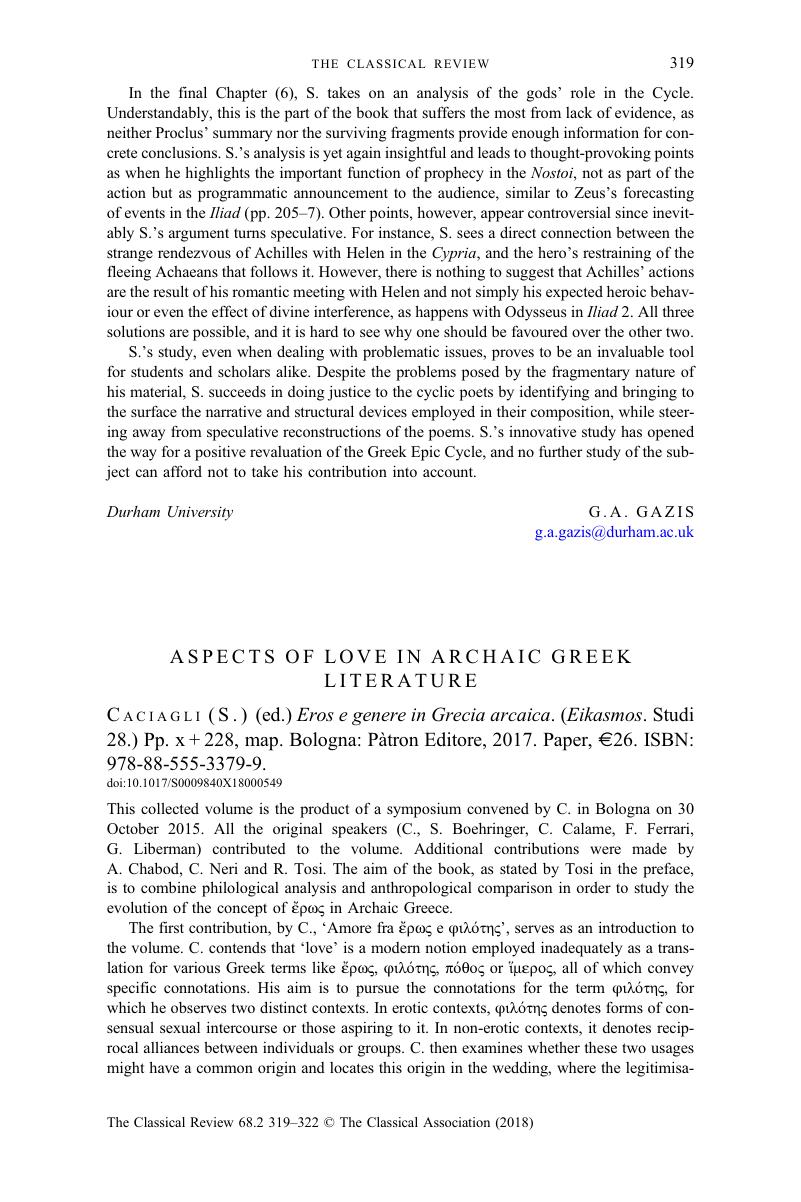No CrossRef data available.
Published online by Cambridge University Press: 23 April 2018

1 As Ferrari points out, ἀλλά in apodosi is common in poetry, especially after a negative protasis. Ferrari objects that such ἀλλά tends to convey, outside of Homeric epic, an inferior substitute to the protasis (pis aller). Since, on his interpretation, Aphrodite offers no immediate help to Sappho but rather a remote disadvantage for the girl, this sense of pis aller works well (‘if she does not accept gifts now, well, at least she will give them herself in the future’). In contrast, ἄλλα (with Hdt. 3.39.2) would seem preferable, if not necessary, for the traditional interpretation.
2 For the first contribution, the treatment of ϕιλότης in LfgrE s.v. is absent as is e.g. Landfester, M., Das griechische Nomen “philos” und seine Ableitungen (1966)Google Scholar; Karavites, P., Promise-Giving and Treaty-Making (1992), esp. pp. 48–58Google Scholar; G. Kloss, Untersuchungen zum Wortfeld “Verlangen/Begehren” im frühgriechischen Epos (1994). For the second contribution, ‘reciprocity’ is treated as a pervasive cultural phenomenon in Archaic Greece (pp. 58–9), but no recent literature is mentioned. At p. 78, consultation of F.S. Naiden, Ancient Supplication (2006), esp. p. 7, might have prevented the wrong statement that supplication is primarily a relationship between humans and gods.